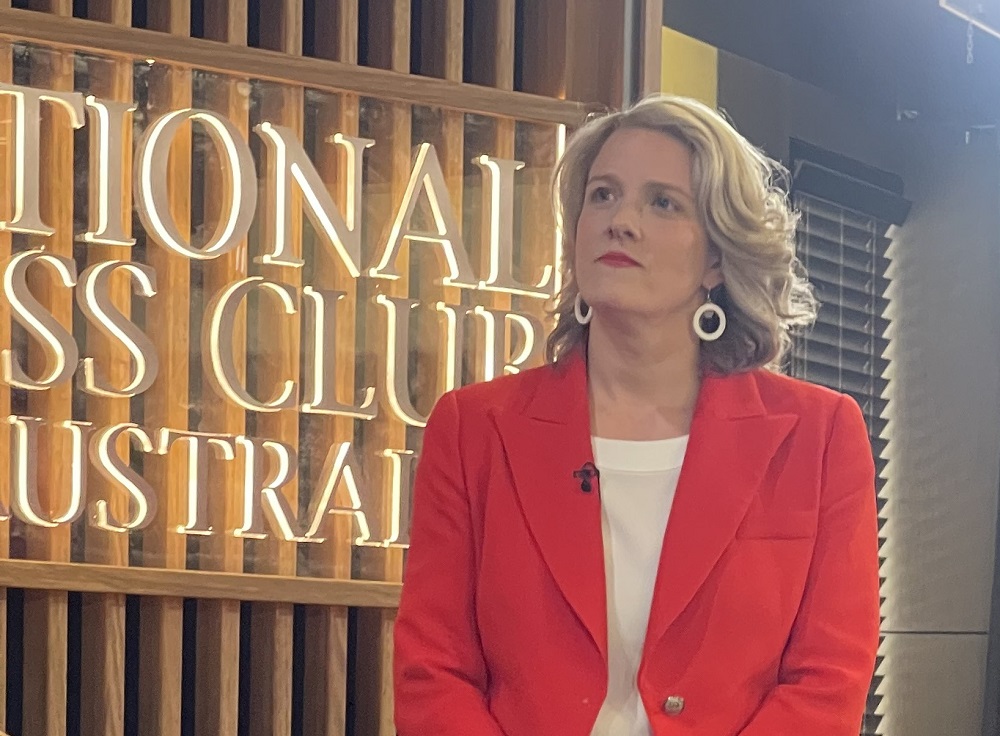Strengthening democracy and resilience top home affairs minister’s agenda
Posted By John Coyne on December 8, 2022 @ 16:45

Home Affairs Minister Clare O’Neil has set out the Albanese government’s goal to redefine the tenor of Australia’s national security conversation, and to reshape her portfolio.
In a speech [1] to the National Press Club, O’Neil avoided the emotive language we have become accustomed to in this space over the past nine years. Instead, she stated that ‘we face a time of great global challenge’. From there she outlined where the Department of Home Affairs needs to evolve its work—in cybersecurity, immigration and countering foreign interference. The minister identified national resilience and maintaining the strength of our democracy as priorities.
Since the department’s establishment in 2017, Home Affairs and its portfolio agencies have achieved much. They’ve faced down and responded to all manner of crises. Their performance measures show notable achievements in disrupting terrorism and transnational organised crime. Home Affairs has been there, ready on many occasions to take on new roles when needed. Even with the return of law enforcement responsibilities to the Attorney General’s Department, this muscular portfolio is focused on responding.
O’Neil acknowledges the department’s achievements and the importance of continuing to do many of these tasks. She also posits that the department must adapt as the threat environment has drastically changed over the last five years.
It seems that the Albanese government wants Home Affairs to adapt from reactive responses to become more proactive. From cybersecurity to foreign interference, the focus is on evidenced-based policy. There’s also a more explicit desire to shape, prevent and prepare for future domestic security challenges.
The government’s focus on national and democratic resilience illustrates this new thinking.
The National Resilience Taskforce will consider how Australians can prepare for and return from crises. The taskforce will have its work cut out, especially given the continual and concurrent crises we’re experiencing. This is no small task—it will require big thinking and a willingness to make significant financial investments.
In his speech launching the Labor Party’s 1972 election campaign, Gough Whitlam pushed the term ‘social cohesion’ into the mainstream when he argued: ‘We can double and treble social benefits, but we can never make up through cash payments for what we take away in mental and physical wellbeing and social cohesion through the breakdown of community life and identity.’
This statement, among others at the time, set the foundations for an almost five-decade-long policy fixation on creating a homogeneous Australia with diverse characteristics. Initially, the government of the day developed policies focused on recognising differences (eventually termed ‘multiculturalism’) and tying society together.
The policy focused on identifying those differences and promoting the right of individual Australians to express their cultural identities. It also recognised Australia’s economic reliance on migration and the contribution that social justice makes to communities cooperating to survive and thrive. Arguably, multiculturalism also had a not-so-subtle message that being different is okay as long as you become part of Australia’s broader community.
Social cohesion has consistently been a key driver of long-term national prosperity and competitiveness. Cohesive societies are politically stable and their members can focus on economic growth and business development. Social cohesion makes competitiveness sustainable. It results from policies that reduce inequality and division by promoting the sharing of prosperity.
Social cohesion can’t be imposed overnight. It takes years to build, but is nevertheless brittle. Australian policy has in the past treated social cohesion as an end state rather than an aspirational goal. Often as a nation we fail to acknowledge that it requires constant nurturing and adaptation in response to changes in the social and economic environment, technology, and national and international political systems.
O’Neil’s focus on democratic resilience seeks to change the aperture of Australia’s social cohesion policies and strategies to focus on democratic resilience. It will undoubtedly have to have many of the same flavours as previous social cohesion policy. However, strengthening our democracy and Australians’ faith in these arrangements is critical to our domestic and national security.
Done well, it will generate new opportunities to accelerate economic growth and reduce the conditions for social division. It will enhance public trust in the government and its institutions. It will also reduce our vulnerability to several domestic and foreign threats during a period of unprecedented strategic uncertainty.
The Albanese government should develop and deploy a national strategy for social cohesion and government trust. The central aim of the strategy should be to draw together the various existing cohesion programs and policies. In doing so, the government should prioritise avoiding measures viewed as tokenistic engagement with cultural difference. Policy measures that fail to contribute to fighting exclusion and marginalisation, that don’t create a sense of belonging, promote trust, and offer people the opportunity for upward mobility should be terminated.
Further attention should be given to repositioning the government’s social cohesion policies to identify and mitigate the conditions that contribute to exclusion and marginalisation. One key element of that process is to move on from ‘forcing’ social cohesion onto Australians and excluding those who don’t accept it. Instead, efforts need to seek out differences and give voice to their proponents, and that needs to include initiatives that promote the democratic process.
Article printed from The Strategist: https://www.aspistrategist.org.au
URL to article: https://www.aspistrategist.org.au/strengthening-democracy-and-resilience-top-home-affairs-ministers-agenda/
URLs in this post:
[1] speech: https://www.youtube.com/watch?v=EH2IUKaWXKw
Click here to print.